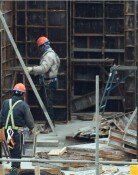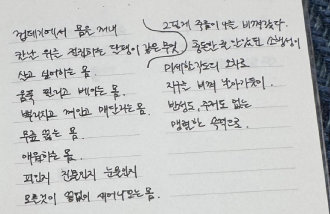China Urges North Korea to Return to Six-Way Talks
China Urges North Korea to Return to Six-Way Talks
Posted May. 06, 2005 23:27,
On May 6, following a series of foreign-minister level meetings in Kyoto, Japan, where the Asia Europe Meeting (ASEM) Foreign Ministers Meeting is being held, South Korea, China, and Japan strongly insisted that the six-party talks aimed at resolving the standoff over North Koreas nuclear weapons program be held as soon as possible and that North Korea return to the six-party talks.
In particular, Chinas attitude toward the issue of North Koreas nuclear weapons program appears to have changed, which draws attention.
South Korean Foreign Minister Ban Ki-moon and his Chinese counterpart, Li Zhaoxing, agreed at the meeting earlier that day that North Koreas additional behavior, which deteriorates the situation in regard to the nuclear issue, doesnt help solve the problem and in fact looks to only deepen the Norths self-caused isolation.
Park Joon-woo, the director-general of the Asia and Pacific Affairs Bureau at South Koreas Foreign Ministry, stated at the briefing held after a meeting, The foreign ministers of the two countries agreed that the six-party talks are the best way to resolve the North Korean nuclear standoff, and they decided to continue their diplomatic efforts in order to peacefully resolve the nuclear crisis of North Korea, adding that the two countries emphasized that the North Korean government should immediately return to the six-way talks.
It seems that Chinas emphasis on the Norths return to the six-way talks, while warning of deepening isolation against North Korea, will exert heavy pressure on North Korea.
China has so far showed a considerate attitude toward North Korea, while being requested from South Korea and the U.S. to act more aggressively to make North Korea return to the six-way talks.
Subsequently, Chinas recent mentioning against North Korea is being interpreted as Chinas message to the North that if the nation doesnt participate in the six-party talks for no clear reason, which would further heighten the crisis over the talks, that China would no longer afford to embrace North Korea or decline the demand by the U.S.
In addition, the two foreign ministers expressed their concerns that the recent exchange of abusive words by North Korea and the U.S. would only aggravate the current situation, and they agreed that those acts do not help resolve the North Korean nuclear issue.
Their common ground on the issue is interpreted as though Minister Li Zhaoxing shared Minister Bans understanding that the current situation is a critical stage in the process of peacefully and diplomatically solving the Norths nuclear issue.
There is another indication that shows that the North Korean nuclear issue is becoming critical, in that Song Min-soon, the deputy foreign minister and a chief negotiator to the six-party talks, will visit Washington D.C. on May 10 in order to discuss the issue of the North Korean nuclear weapons program.
Minister Ban held a Korea-Japan foreign ministers meeting with his Japanese counterpart, Nobutaka Machimura, on the afternoon of May 6, in which the two foreign ministers agreed that North Koreas prompt return to six-way talks is only desirable for the future of North Korea and urged the North to come to a strategic decision.
It was reported that Japanese Minister Machimura said at the meeting that if no progress is made in the six-party talks, the other countries have to consider another choice, for example, bringing the case to the U.N. Security Council, but Korean Minister Ban didnt reply to that matter.
South Korea, China, and Japan will discuss the measures for resolving the North Korean nuclear crisis and the issue of hosting the summit meeting between Korea, China, and Japan on May 7.
Jong-Koo Yoon jkmas@donga.com







